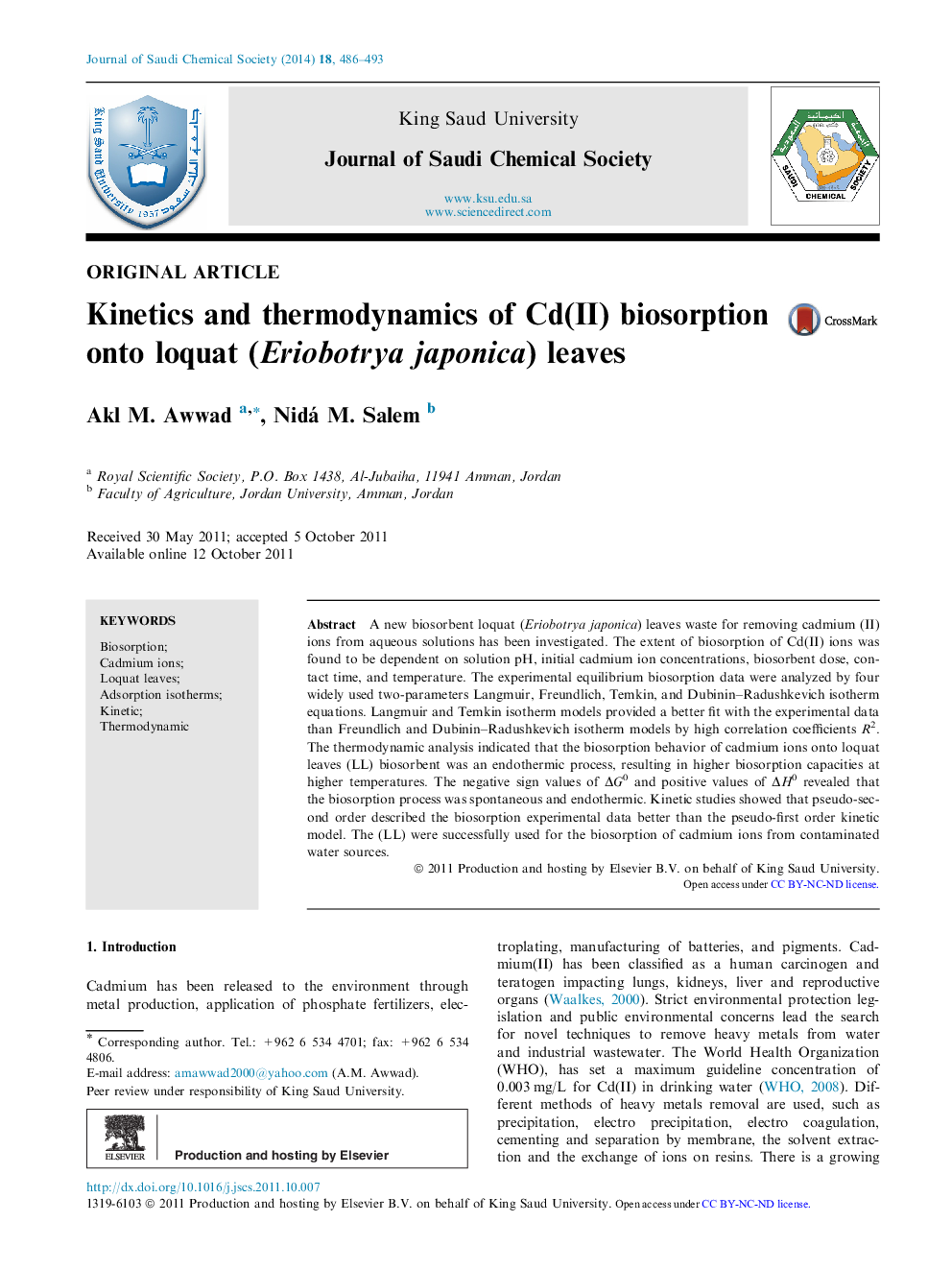| کد مقاله | کد نشریه | سال انتشار | مقاله انگلیسی | نسخه تمام متن |
|---|---|---|---|---|
| 229483 | 465030 | 2014 | 8 صفحه PDF | دانلود رایگان |

A new biosorbent loquat (Eriobotrya japonica) leaves waste for removing cadmium (II) ions from aqueous solutions has been investigated. The extent of biosorption of Cd(II) ions was found to be dependent on solution pH, initial cadmium ion concentrations, biosorbent dose, contact time, and temperature. The experimental equilibrium biosorption data were analyzed by four widely used two-parameters Langmuir, Freundlich, Temkin, and Dubinin–Radushkevich isotherm equations. Langmuir and Temkin isotherm models provided a better fit with the experimental data than Freundlich and Dubinin–Radushkevich isotherm models by high correlation coefficients R2. The thermodynamic analysis indicated that the biosorption behavior of cadmium ions onto loquat leaves (LL) biosorbent was an endothermic process, resulting in higher biosorption capacities at higher temperatures. The negative sign values of ΔG0 and positive values of ΔH0 revealed that the biosorption process was spontaneous and endothermic. Kinetic studies showed that pseudo-second order described the biosorption experimental data better than the pseudo-first order kinetic model. The (LL) were successfully used for the biosorption of cadmium ions from contaminated water sources.
Journal: Journal of Saudi Chemical Society - Volume 18, Issue 5, November 2014, Pages 486–493